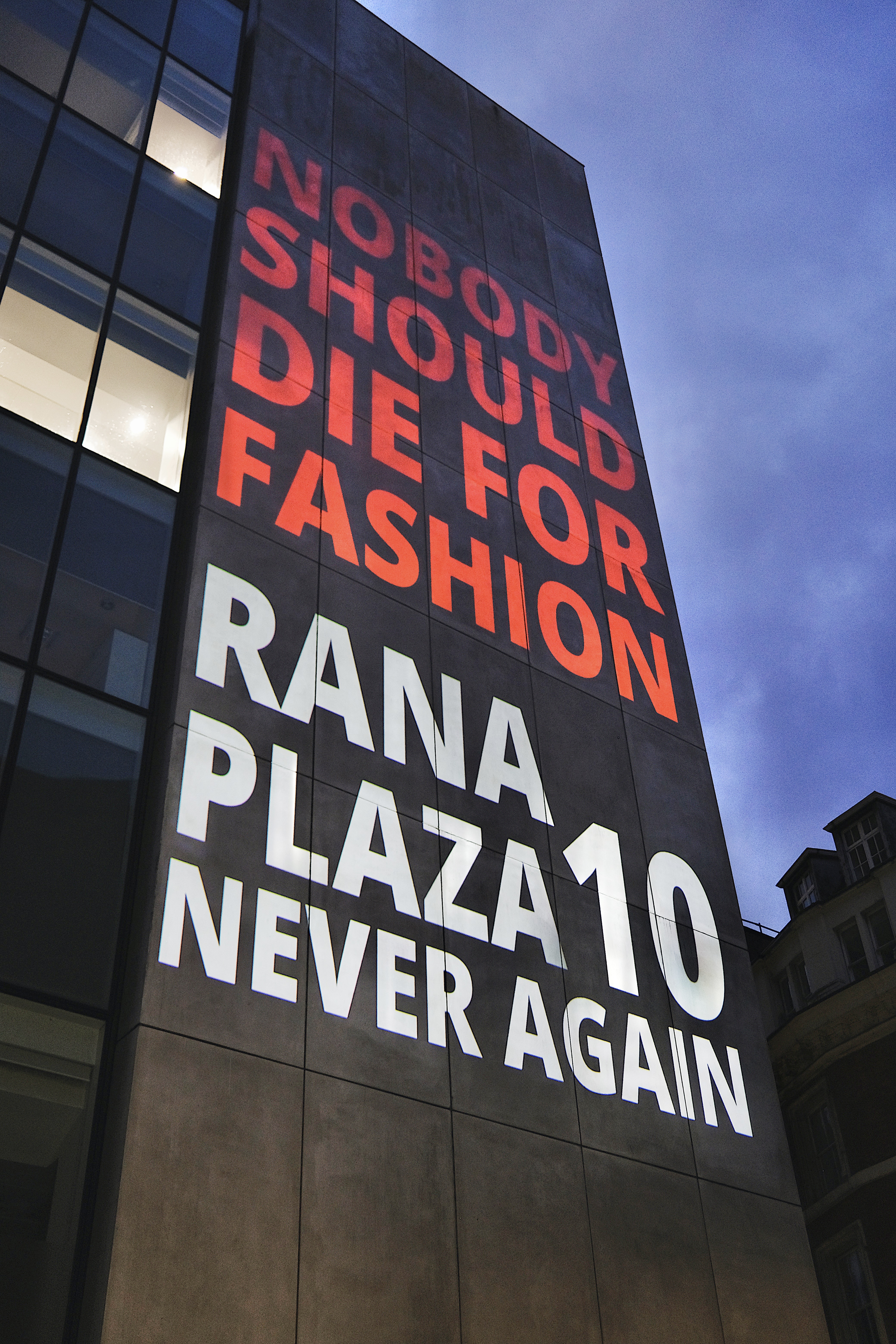Apr 24
Rana Plaza 10 Years On

Ten years ago, on the 24th of April in Dhaka, Bangladesh, one of the largest garment factories, known as Rana Plaza, collapsed. The tragic incident took 1,134 lives and injured an additional 2,500 more. This factory supplied clothing for brands such as Mango, Primark and Matalan.
What makes this even more difficult to comprehend is that cracks in the buildings were spotted days before the collapse. Bankers who shared the building were told to stay home for safety, whereas garment workers’ rights were violated. They were forced to go to work or risk taking a pay cut or losing their job.
Fast fashion brands are accountable for the lives lost and the continued exploitation of garment workers (mainly women supporting families). Why do fast fashion CEOs think it’s okay to jeopardise the lives of people in the global south to meet the demands of Western consumption?
Ten Years Later, Where are we?
Though it shouldn’t have taken a building collapsing and multiple deaths for something to change, the disaster made numerous people realise that something needed to be done.
Many mainstream fast fashion brands have since signed the Bangladesh Accord on Fire and Building Safety and The Alliance for Bangladesh Worker Safety. This has had an undeniable positive effect on garment workers, as it now means factories legally have to be made safer for workers.
It’s a fundamental human right, but thanks to the Accord, garment workers in Bangladesh now have the power to turn down unsafe work. People have been trained to safeguard working conditions, so there’s no excuse for dangerous labour conditions to exist.
However, not all fashion brands have signed the Accord. We’re looking at you, Levis and Urban Outfitters. While progress has been made, there’s a long way to go to protect the rights of all garment workers, and right now, we can’t safely say — for sure — that an incident like Rana Plaza will never happen again.
What We Did About It (and what you can too!)
In memory of the tragic incident and to show our frustration towards the corruption at the core of the fast fashion industry, we took to the streets alongside sustainable Fashion Journalist Sophie Benson, the Staniland twins, Stitched Up UK, and others, in the hope of educating the public on the reality that still exists today. Home to Boohoo and Pretty Little Thing’s HQ, Manchester seemed the perfect place to stage the action, which included a walking protest and educational projections around the city centre.
For those that couldn’t join us, here’s a rundown of events:
The Protest
1,134 lives lost, corporate greed has a cost
Before the walking protest started, Sophie Benson kicked things off with a speech detailing the moments surrounding the building collapse. The names of the victims were then read aloud by the group in memory of those that died.
We moved to block the entrances to Primark, Mango, Urban Outfitters, Levi’s and Zara — all stores that had clothing produced in Rana Plaza or are yet to sign the Accord for fair labour regulations in Bangladesh and Pakistan.
It was great to engage with the public, and we felt people were taking note of our message. Sadly, some didn’t agree it was a valued cause — which is difficult to understand — but it shows how important it is to continue fighting the good fight, as we’re still far from getting justice.
The Projections
Later, we projected educational info about Rana Plaza and images from the day onto buildings in central Manchester.
Lit up under the night sky, we hope that these projections have encouraged others to learn about the tragedy, recognise the poor labour conditions within garment factories and have them reconsidering their fashion consumption from stores that continuously exploit people over profit.
What You Can Do About It
If you’ve got 10 seconds, check out these resources and petitions that’ll help make a valuable difference towards worker's rights in Bangladesh and other garment factories across the globe.
We must educate the people around us and help protect garment workers’ rights until justice is achieved.
Thank you so much to Sophie for organising the day and to everyone else who joined us in standing up against corporate greed.